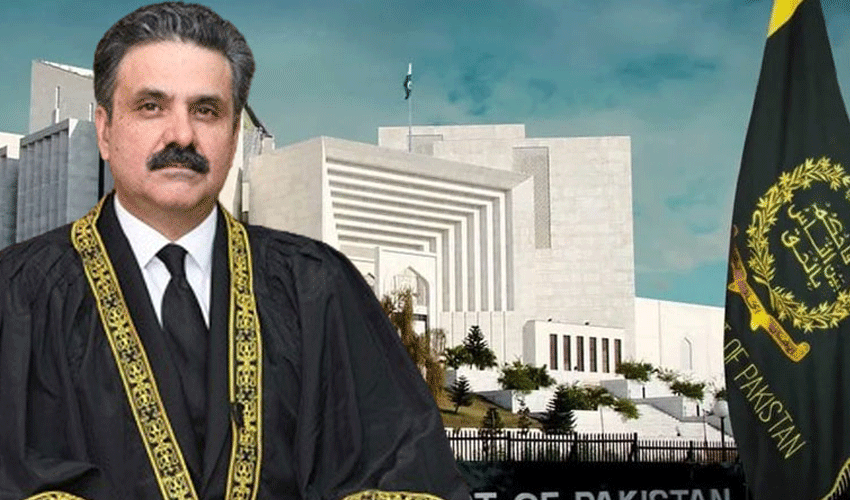The Supreme Court on Thursday postponed the critical hearing on appeals challenging the legality of military court trials for civilians until tomorrow, after the federation’s lawyer, Khawaja Haris, was unable to conclude his rebuttal arguments for the second consecutive day.
A seven-member constitutional bench, headed by Justice Aminuddin Khan, is presiding over this high-stakes case that raises fundamental questions about whether civilians can be legally tried under military jurisdiction — an issue that has been a persistent point of contention for decades.
Justice Mandokhel Challenges Status of Military Courts
During the court proceedings, Justice Jamal Mandokhel repeatedly posed a fundamental constitutional question: “Can military courts even be rightfully called courts?” He urged a thorough re-examination of Article 175 of the Constitution, which lays out the framework and legitimacy of judicial bodies within Pakistan.
Khawaja Haris, representing the Ministry of Defence, countered that military courts are indeed legitimate judicial forums operating under a specific criminal jurisdiction, and their existence is rooted in constitutional frameworks dating back to 1956 and 1962. He referenced the Liaquat Hussain case, where the Supreme Court had previously ruled that civilians could be tried in military courts under certain defined conditions.
“There is no doubt that a fair trial is conducted in military courts. Officers take a formal oath to ensure justice,” Haris asserted.
Judges Voice Concerns Over Fair Trial and Right to Appeal
Justice Musarrat Hilali and Justice Mandokhel both raised significant concerns regarding the transparency of military court proceedings and the fundamental right to appeal. Justice Mandokhel questioned, “What recourse does an accused have if they claim they were denied a fair trial and the relevant records are withheld? How can they effectively argue their case?”
Khawaja Haris maintained that none of the 105 civilians tried in connection with the May 9th incidents had come forward alleging they were denied fair trials. However, Justice Hilali pointedly asked where such individuals would even turn if they did raise such concerns. “Those people have already recounted enough about what transpired.”
Attorney General’s Absence Draws Judicial Criticism Over Delay
Tensions rose when the Attorney General of Pakistan was unexpectedly absent from the court proceedings. The Additional Attorney General requested an additional 2-3 days for further consultation on the matter of appeals. This request visibly frustrated the bench, particularly Justice Mandokhel.
“What kind of joke is this? Why are you unnecessarily delaying this case? Do you even intend to see this case through to completion?” Justice Mandokhel asked with clear exasperation.
Justice Hilali added, “The Attorney General himself stated he would only need 10 to 15 minutes to present his arguments. Why hasn’t he appeared?”
The bench reminded the Additional Attorney General that the government had already designated Khawaja Haris to represent their case and now appeared to be unnecessarily prolonging the proceedings.
Following these heated exchanges, the court firmly directed Khawaja Haris to conclude his arguments by tomorrow without fail. The Attorney General has been instructed to begin his submissions on April 28th, as the bench will not be available in the intervening days.
“We will hear the Attorney General on April 28th. Following tomorrow’s hearing, the case stands adjourned until then,” announced Justice Aminuddin Khan.



